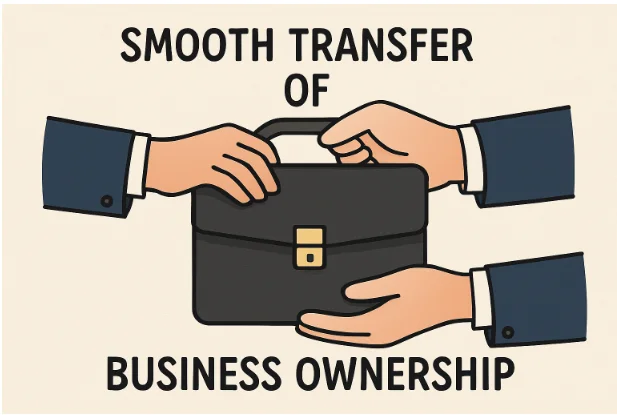Contents
- 1 Key Takeaways
- 2 Develop a Comprehensive Exit Strategy
- 3 Enhance Financial Performance and Operational Efficiency
- 4 Build a Strong and Adaptable Team
- 5 Communicate Transparently with Stakeholders
- 6 Seek Professional Guidance
- 7 Plan for Post-Sale Transition
- 8 Preserve Your Legacy and Ensure Stability
- 9 Understand Buyer Expectations
Key Takeaways
- Develop an exit strategy early to increase your business’s value and buyer interest.
- Optimize financial performance and operational efficiency prior to sale.
- Empower your team and communicate clearly with key stakeholders.
- Engage professional help to navigate complex legal, financial, and tax matters.
- Anticipate post-sale responsibilities and prepare to support a smooth transition.
Selling your business is a significant milestone that involves much more than simply signing papers and handing over the keys. Proper preparation can be the difference between a stressful exit and a rewarding transition that benefits all parties. By approaching this process with a solid roadmap, you position your business to maximize value and ensure long-term stability. Early attention to business exit planning gives business owners a clear strategy for navigating the complexities involved and addressing common pitfalls before they arise.
Thoughtful planning not only results in a higher sale price but also smooths the transition for your employees and customers. From enhancing financial performance to building a resilient team and communicating effectively, every aspect plays a role in shaping a successful handover. Moreover, establishing transparent communication with stakeholders helps maintain trust and minimize disruptions. These foundational steps will help you confidently pass the torch, knowing your company’s future is secure.
Develop a Comprehensive Exit Strategy
The most successful business sales start years in advance. Outlining exit objectives, identifying your ideal buyer, and researching market trends are the cornerstones of good planning. According to Business.com, setting a clear exit strategy early allows business owners to anticipate challenges and position their company for maximum value. Establish a timeline that gives you room to address weaknesses and make improvements that add tangible value. Companies that invest in digital upgrades, diversification, or market expansion frequently attract premium offers.
Enhance Financial Performance and Operational Efficiency
Buyers want proof that your business is profitable, resilient, and scalable. Presenting up-to-date, accurate financial statements builds confidence. Improving profitability, reducing unnecessary expenses, and streamlining operations communicates a well-managed company. Evaluate your pricing strategies, product/service mix, and recurring revenue streams. According to Investopedia, understanding operational efficiency is key to assessing how effectively a business converts resources into profitable output. Even small increases in profit margins or cash flow can significantly impact perceived value. A transparent review with your financial team can often reveal overlooked opportunities to boost your bottom line.
Build a Strong and Adaptable Team
Your team is one of your most valuable assets. Buyers are drawn to businesses with capable management and employees committed to the company’s vision. Invest in ongoing training and upskilling, and provide clear advancement paths. A knowledgeable and stable workforce demonstrates long-term viability and lessens the buyer’s risk of disruption. Fostering a collaborative, positive workplace culture reduces turnover and ensures business continuity during and after the transition.
Communicate Transparently with Stakeholders
Keeping all parties informed throughout the sale process will minimize uncertainty and strengthen relationships. Early, honest discussions with employees, customers, suppliers, and partners help ease anxieties and prevent gossip from harming morale. Provide reassurance about the business’s ongoing direction and commitment to quality to maintain stability. Openness with key stakeholders typically leads to better collaboration and smoother handovers, particularly when the transition involves changes in management or operations.
Seek Professional Guidance
Engaging qualified advisors early in the process streamlines everything from legal paperwork to tax minimization. Professionals such as accountants, business brokers, financial planners, and legal counsel bring specialized skills to protect your interests and maximize the sale price. Their expertise is especially critical for navigating regulatory requirements, drafting contracts, and understanding the tax implications of various deal structures.
Plan for Post-Sale Transition
Buyers regularly request that sellers stay engaged for a period following the sale—sometimes for months or even years. Design a clear transition plan outlining your responsibilities, training for the new ownership or management, and guidelines for communicating the changes internally and externally. Being emotionally prepared to let go and support your business as it evolves under new leadership will make a difference in how effectively the transition is managed. Proactive planning lays the groundwork for the ongoing success of your former company and its people.
Preserve Your Legacy and Ensure Stability
Pride in your creation is understandable—years of vision, risk-taking, and hard work are at the heart of every business. Carefully managing your exit not only preserves your legacy but also protects your team and customers, who have placed their trust in your business. Setting up new leaders or owners for success and ensuring they are committed to your service standards keeps your company’s reputation strong for years to come. A thoughtful, well-executed handover is the lasting mark of a dedicated entrepreneur and the best assurance of future stability.
Understand Buyer Expectations
Knowing what buyers want puts you in a better position to command top dollar. Financial performance, recurring revenue streams, strong leadership, and scalability are universally valued. Other considerations, such as proprietary technology, intellectual property, customer contracts, or market share, can add significant appeal. Accurately packaging and presenting your business’s strengths and addressing any weaknesses before negotiation can be the difference between a drawn-out process and a rapid, lucrative sale.
Adhering to these strategic steps gives you control over your business exit and paves the way for a smooth transition of ownership. With the right approach, your company and its stakeholders will continue to thrive long after the sale is complete.




